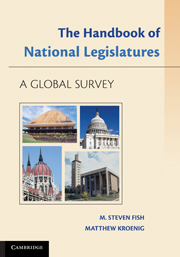1 - Introduction
Published online by Cambridge University Press: 05 June 2012
Summary
This book is the product of a lot of curiosity and a bit of dissatisfaction. The curiosity focuses on a matter that interests anyone who studies politics: Where is the power? The dissatisfaction arises from the shortage of information that addresses that question in a global framework. We are particularly interested in where official power – that is, the power vested in the government and the organs of state – resides. In our research on a variety of topics, each of us – one a student of comparative politics, the other a specialist in international relations – consistently encounters a shortage of information. In our many conversations with colleagues both inside and outside the academy, we have come to realize that demand for information on where power resides exceeds supply. For millennia, students of politics have analyzed power, and for at least a century, social scientists have scrutinized formal political institutions and the distribution of power among agencies of government and the state. But we still do not have a rich bank of data measuring the power of this or that agency, and information on legislatures is in especially short supply. For many countries one is hard-pressed to find any relevant information at all. In recent decades, pioneering scholars, particularly in political science, have taken up the challenge of studying legislatures outside the advanced industrialized countries. Still, writings on legislatures in many parts of the world remain negligible, even if the quality of available studies is often high.
- Type
- Chapter
- Information
- The Handbook of National LegislaturesA Global Survey, pp. 1 - 17Publisher: Cambridge University PressPrint publication year: 2009



